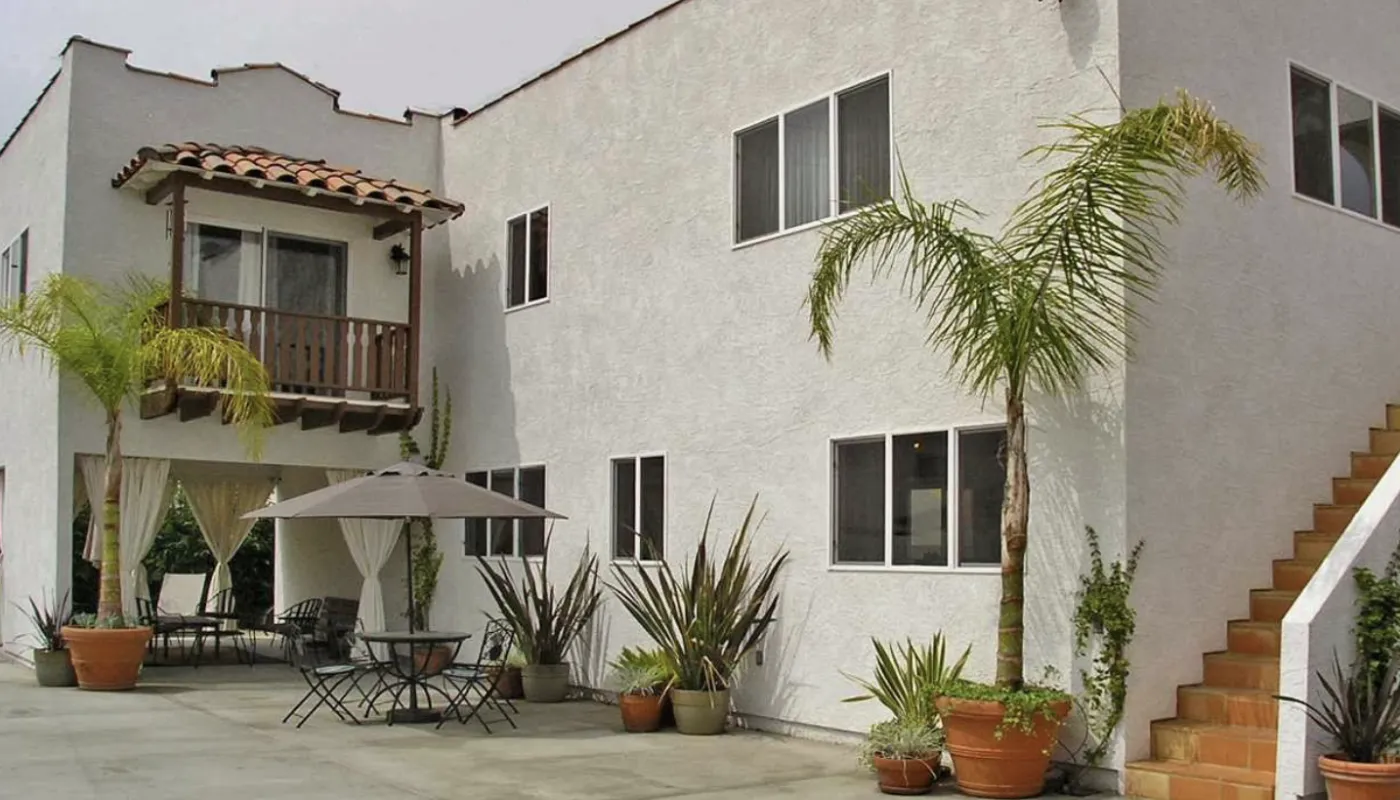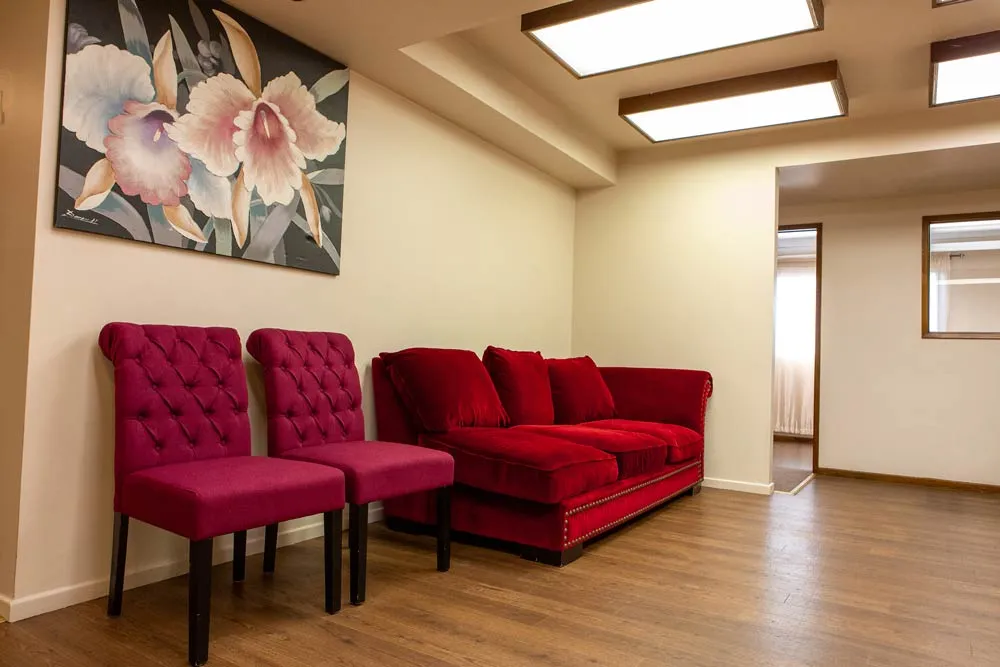Understanding Xanax Addiction in Beverly Hills
In Beverly Hills, where High Achievement and constant pressures often shape daily life, it's not un...
In Beverly Hills, where High Achievement and constant pressures often shape daily life, it's not uncommon for individuals to turn to medications like Xanax to manage anxiety or stress. While prescribed legally for legitimate conditions such as panic disorders or severe anxiety, Xanax—part of the benzodiazepine class—carries a high risk for dependency when used long term or outside prescribed guidelines.
Xanax addiction is a medical condition, not a failure of willpower or character. It often begins subtly, with a growing reliance on the calming effects of the drug. Over time, the brain adapts to its presence, leading to increased tolerance and withdrawal symptoms when it's not taken. In Beverly Hills, where the culture can prioritize appearances and perfection, recognizing prescription drug abuse can be particularly difficult—but early identification and compassionate care are key.
Developing a healthier relationship with mental wellness starts with understanding that support exists and treatment is possible without shame or stigma.
Signs Your Xanax Use Is Becoming Problematic
Recognizing when Xanax use starts shifting from legitimate, short-term relief to dependency is a critical first step. Since Xanax is commonly prescribed for anxiety and panic disorders, it can be easy to justify continued use without noticing harmful patterns. However, when usage escalates beyond the prescribed dose or extends without medical oversight, it may signal the onset of addiction.
Behavioral signs often appear early. You might notice yourself obsessing over your next dose or becoming anxious when your supply runs low. Skipping social or work responsibilities to use Xanax, hiding your use from others, or attempting to get multiple prescriptions are red flags. Over time, physical symptoms such as drowsiness, memory problems, or slurred speech can emerge—especially as tolerance builds.
Another clear warning sign is experiencing withdrawal symptoms when not using the drug. These can include insomnia, irritability, tremors, or even seizures, indicating your body has become dependent. If you or a loved one is experiencing these effects, it’s a sign that quitting Xanax without support can be dangerous.
Understanding these signs early can prevent the condition from deepening. Whether you're worried about your own use or a loved one’s, knowing the symptoms of problematic Xanax use can guide you toward getting professional help safely and effectively.
Steps to Take Before Quitting Xanax
If you’re thinking about quitting Xanax, taking the right preparatory steps can make an important difference in your safety and success. Because Xanax affects your brain’s chemistry, abrupt changes can lead to serious withdrawal symptoms. That's why making a thoughtful plan, rather than stopping suddenly, is essential.
Start by talking openly with a healthcare provider or addiction specialist. They can assess your current use and determine if you’re physically dependent, which can influence the safest path forward. Having this discussion is vital, especially if you’ve been using Xanax for more than a few weeks or at higher doses—both of which increase the risks associated with withdrawal.
You may also want to prepare emotionally and logistically. That might mean informing someone you trust about your decision, arranging time off from work if possible, and identifying recovery support options. It’s also helpful to understand that quitting Xanax is a process that often requires medical supervision to manage the physical changes safely and prevent complications. Taking time to plan your next steps can improve both your short-term safety and long-term recovery outlook.
Risks of Stopping Xanax Cold Turkey
Quitting Xanax abruptly, often referred to as stopping "cold turkey," can be dangerous and, in some cases, life-threatening. Benzodiazepines like Xanax alter brain chemistry, and a sudden cessation can lead to severe withdrawal symptoms. These may include panic attacks, insomnia, extreme anxiety, seizures, and heart palpitations. In extreme cases, withdrawal without medical support can trigger psychosis, hallucinations, or suicidal thoughts.
Your body builds dependence over time, so reducing Xanax intake requires careful planning and professional support. Without it, the central nervous system can become overstimulated, creating both physical and psychological distress. Many people who try to quit without help find it difficult to manage the symptoms, increasing the risk of relapse or injury.
Medical detox programs, often part of benzodiazepine rehab, are designed to gradually taper the drug under supervision, minimizing these risks. These programs monitor vital signs, provide medications when necessary, and offer emotional support during this vulnerable period. If you're thinking about quitting Xanax, seeking clinical guidance isn’t just a suggestion—it’s a vital safety measure. Stopping cold turkey may seem like a quick solution, but the safer, more effective path involves gradual change, not sudden abstinence.
Why Medical Detox Is Crucial for Xanax
Medical detox is often the first essential step in safely addressing Xanax addiction. Because Xanax is a benzodiazepine, it can produce powerful withdrawal symptoms when you stop taking it, especially after long-term use or high doses. These symptoms can include seizures, hallucinations, panic attacks, and dangerously elevated anxiety. Stopping suddenly, or "cold turkey," without medical oversight can be life-threatening in some cases.
Under medical supervision, detox becomes significantly safer and more manageable. Healthcare professionals can monitor your vital signs and adjust medications to ease withdrawal symptoms as they arise. In some cases, a longer-acting benzodiazepine may be used to taper the effects of Xanax and reduce the intensity of the detox process. This approach helps stabilize your body and sets the foundation for longer-term therapy.
Additionally, supervised detox allows for early identification of any complications and can lead smoothly into inpatient care or outpatient treatment, depending on your needs. It is the gateway to a personalized recovery plan that includes therapy, support systems, and relapse prevention tools. For anyone wondering how to stop Xanax addiction in Beverly Hills safely, beginning with medical detox is a clinically sound and compassionate first step.
How Long Xanax Detox Takes
Detoxing from Xanax is a complex process that can vary depending on several factors, including how long you've been taking the medication, your dosage, and whether you’ve used other substances. Generally, the acute withdrawal phase begins within 6 to 12 hours of your last dose. The most intense period of symptoms typically peaks around days 2 to 4 and may last up to two weeks.
Symptoms can include anxiety, insomnia, irritability, headaches, nausea, and in more severe cases, seizures. After this initial detox phase, many individuals experience protracted withdrawal symptoms—such as lingering anxiety or mood swings—that can last for weeks or even months.
This extended withdrawal timeline makes medical supervision and emotional support essential components of recovery. Each person’s detox experience is unique, and a safe, individualized plan is key to managing the symptoms effectively. Whether you’re considering inpatient care or exploring outpatient treatment options in Beverly Hills, knowing what to expect during detox can help you prepare for both the physical and emotional aspects of the journey.
Can You Taper Off Xanax at Home?
Tapering off Xanax at home may be possible for some individuals, but it carries significant risks and should only be considered with full medical supervision. Quitting Xanax suddenly, especially without guidance, can lead to dangerous withdrawal symptoms such as seizures, panic attacks, or intense rebound anxiety. This is particularly risky for those who have been using the medication in high doses or for extended periods.
If you are considering a home taper, it's essential to consult a healthcare provider experienced with benzodiazepine withdrawal. They can help design a personalized, slow reduction plan that prioritizes safety. Some individuals with milder dependency and a strong support system might be able to taper gradually from home. However, for most people, a supervised detox—either outpatient or inpatient—is the safer route.
It’s worth noting that even when tapering at home, emotional support and regular check-ins with a medical professional remain critical. You don’t have to navigate this process alone, and trying to do so without proper oversight can increase the risk of serious health complications or relapse.
Is Rehab Necessary for Xanax Dependency?
Whether or not you need rehab to stop Xanax dependency depends on several personal factors, including how long you've been taking the medication, your dosage, and whether you've experienced withdrawal symptoms in past attempts to quit. While not everyone requires inpatient care, many people benefit from the structure and safety of formal treatment—especially if Xanax use has escalated beyond the original prescription or co-occurs with mental health issues like anxiety or depression.
Outpatient treatment may be a suitable option if you're stable, committed to recovery, and have a strong support network at home. These programs allow you to continue with everyday life while attending scheduled therapy sessions and medical check-ins. On the other hand, inpatient care may be necessary for those facing severe dependence, multiple failed attempts to quit, or other complicating factors. A residential setting offers around-the-clock medical supervision, which is particularly important when detoxing from benzodiazepines like Xanax.
Ultimately, choosing rehab is about ensuring safety and giving yourself the best chance at long-term recovery, not just about how "serious" your situation appears. A clinical assessment can help you weigh these options honestly and without judgment.
Evidence-Based Therapies for Xanax Recovery
CBT for Xanax Cravings and Coping
Cognitive Behavioral Therapy (CBT) helps individuals recovering from Xanax addiction identify and challenge the thought patterns that often drive misuse. For many, triggers such as anxiety, stress, or social pressure can lead to cravings or relapse. Managing Xanax cravings with CBT focuses on equipping you with healthier coping mechanisms, enabling you to respond to those triggers in more adaptive ways.
In structured sessions, a therapist helps you recognize distorted thinking and teaches practical tools to manage withdrawal symptoms and mood shifts. Over time, CBT supports long-term recovery by reinforcing new behaviors that reduce the risk of future relapse, making it a cornerstone of sustainable recovery support.
Using Motivational Interviewing in Early Recovery
Motivational Interviewing (MI) meets you where you are in early recovery, especially if you're feeling uncertain about quitting Xanax completely. This client-centered approach helps draw out your internal motivation for change, making it a powerful tool during detox and the first stages of treatment.
Rather than confronting resistance, motivational interviewing in rehab gently explores your personal goals and values to reinforce the idea that change is both possible and worth pursuing. By increasing your confidence and commitment to sobriety from within, MI contributes meaningfully to relapse prevention efforts and longer-term success in recovery.
Free or Low-Cost Xanax Rehab in Beverly Hills
If you're struggling with Xanax dependency and worried about the cost of treatment, you’re not alone. Many residents in Beverly Hills and surrounding areas face financial barriers when seeking help for prescription drug abuse. Thankfully, there are affordable and publicly funded resources available to support your recovery journey.
Some local outpatient treatment programs offer sliding scale fees based on income, while others may accept Medi-Cal or other public insurance plans. Community mental health centers and nonprofit addiction recovery clinics in Los Angeles County can also provide low-cost services, especially for individuals without private insurance. These facilities may offer essential care such as supervised detox, counseling, and relapse prevention education.
To find the best fit for your needs, you may want to contact treatment centers directly and ask whether they offer payment assistance or financing options. If you're covered by insurance, it's also important to verify what portion of treatment will be covered under your plan, especially for inpatient care or medical supervision during detox.
Don’t let cost stand between you and recovery. With some research and guidance, safe and affordable help is within reach in Beverly Hills.
Xanax Relapse Prevention Strategies in Beverly Hills
Preventing Xanax Relapse in Beverly Hills after detox is one of the most critical parts of sustained recovery. In Beverly Hills, you can take advantage of structured support systems, both clinical and community-based, to stay on track. Developing an individualized relapse prevention plan with your care team is a vital first step. This includes identifying your triggers, managing stressors, and setting realistic personal goals that support drug-free living.
Local outpatient programs and alumni groups associated with inpatient facilities often provide continued therapy, accountability, and sober social connections. Beverly Hills is also home to 12-step and non-12-step recovery groups that meet regularly, both in person and online. Therapeutic approaches like cognitive behavioral therapy (CBT) and mindfulness training can help reframe anxious thinking patterns that may resurface during recovery.
If you’ve already gone through detox or rehab, ongoing aftercare services could include weekly counseling, medication management, and access to emergency support if cravings return. Staying flexible and connected with a sober support network is key to long-term success in avoiding relapse.
Final Steps: Getting Help at a Beverly Hills Rehab Center
Deciding to stop Xanax addiction is a powerful step, but you don't have to do it alone. Seeking treatment at a local rehab center can provide the structure, medical supervision, and emotional support necessary to safely recover. Whether you need inpatient care, outpatient treatment, or specialized therapy for prescription drug abuse, Beverly Hills has options that align with your needs.
Recovery isn’t one-size-fits-all. The right support system—offered by qualified professionals familiar with Xanax withdrawal and relapse prevention—can make your journey more manageable and lasting. If you're unsure where to begin, exploring nearby facilities can help you find a safe and compassionate path forward.
Take the next step by learning more about your local choices for benzodiazepine rehab in Beverly Hills and the greater Los Angeles area.
Start Your Recovery in Beverly













































